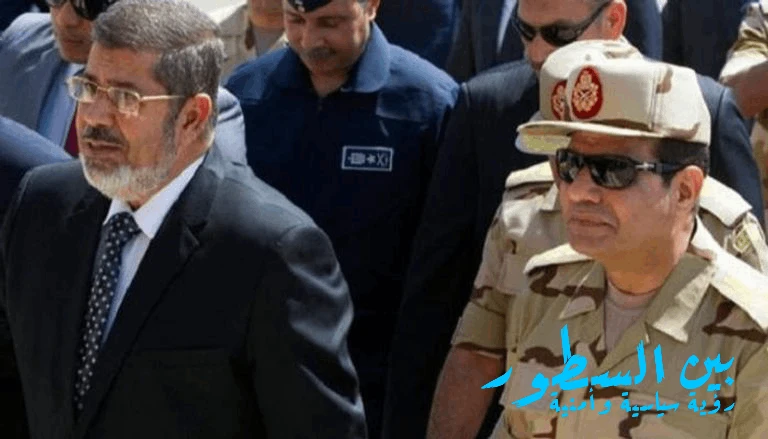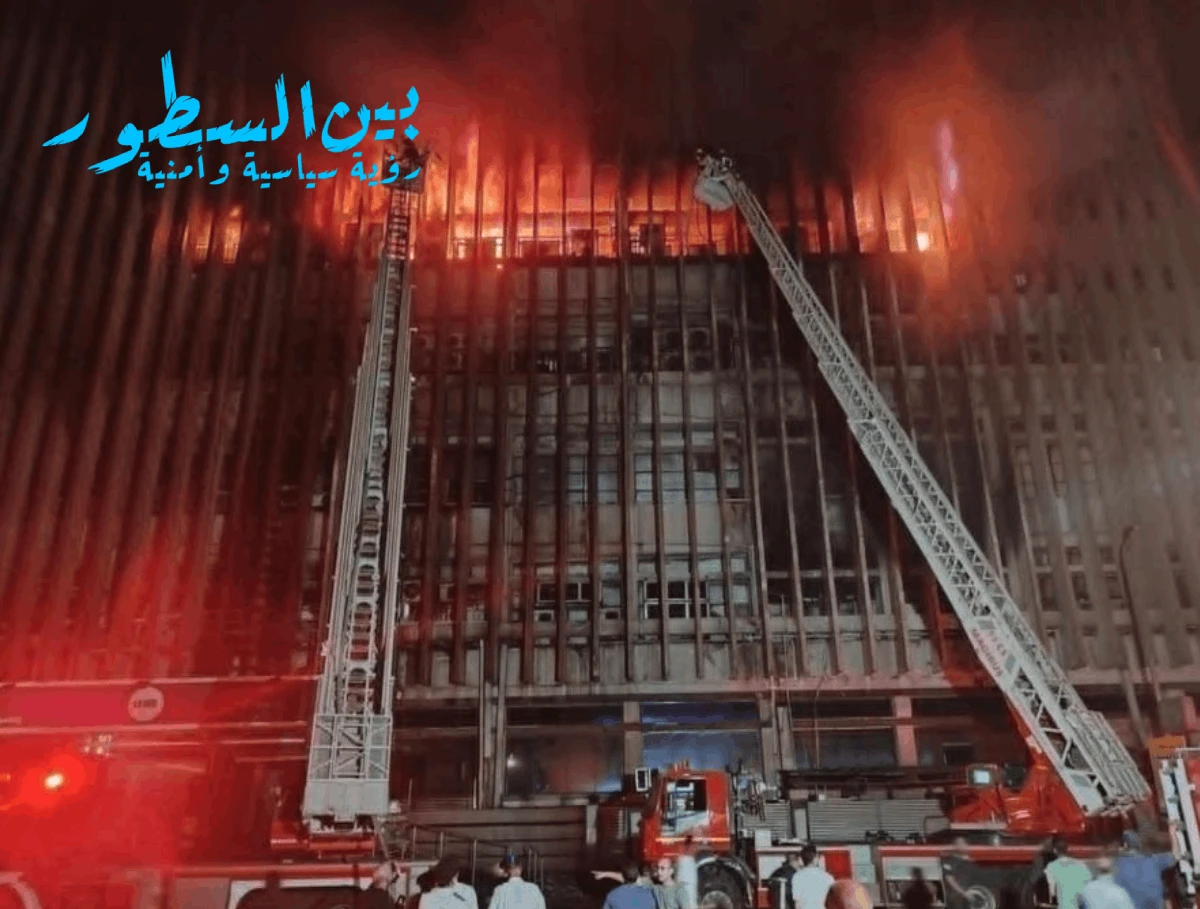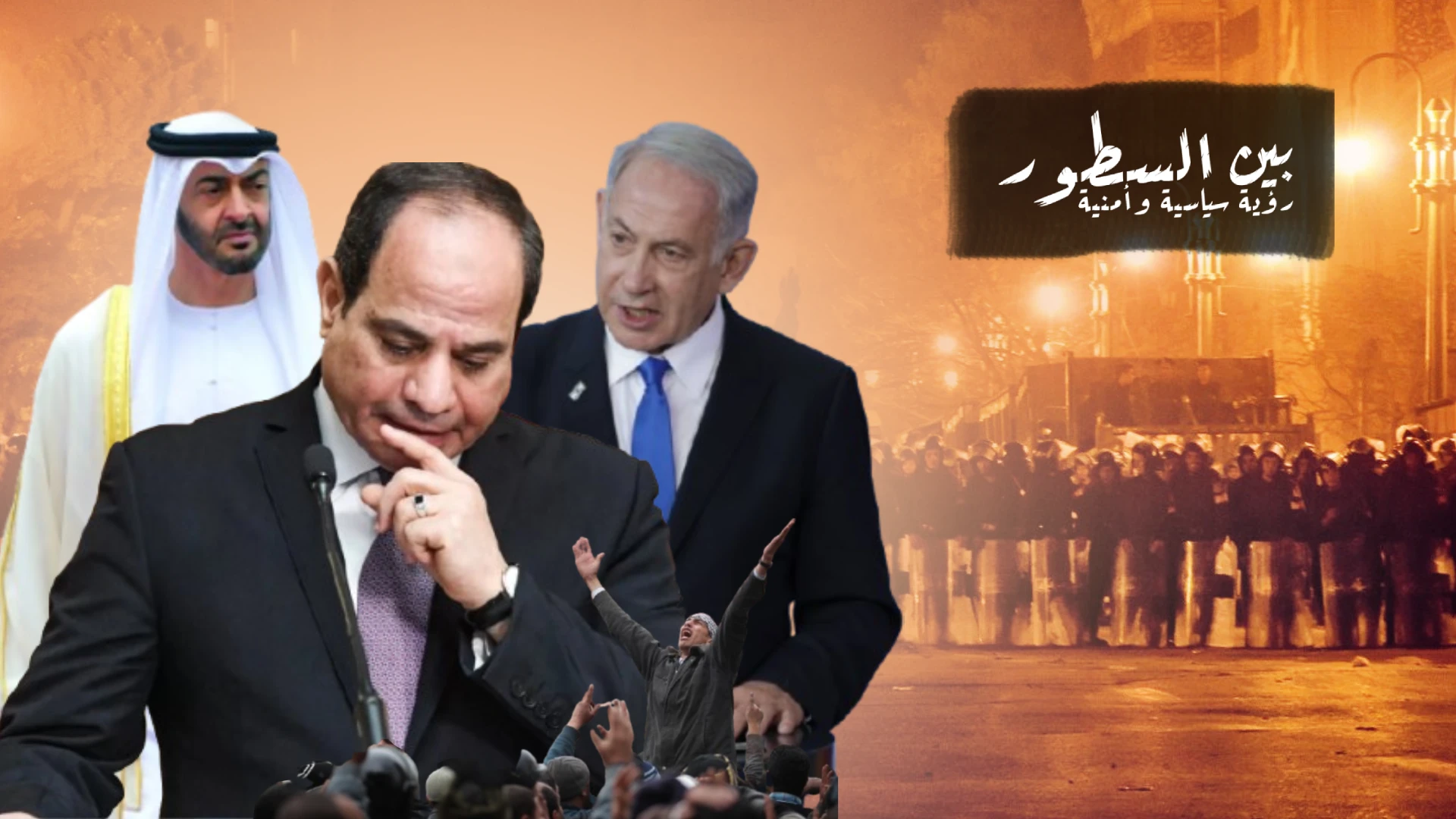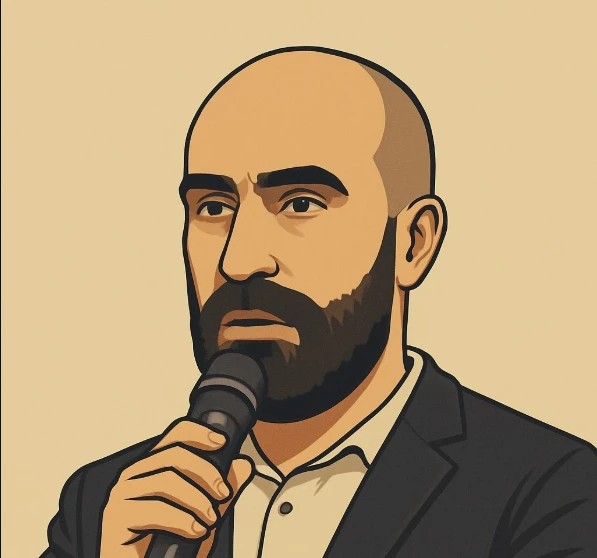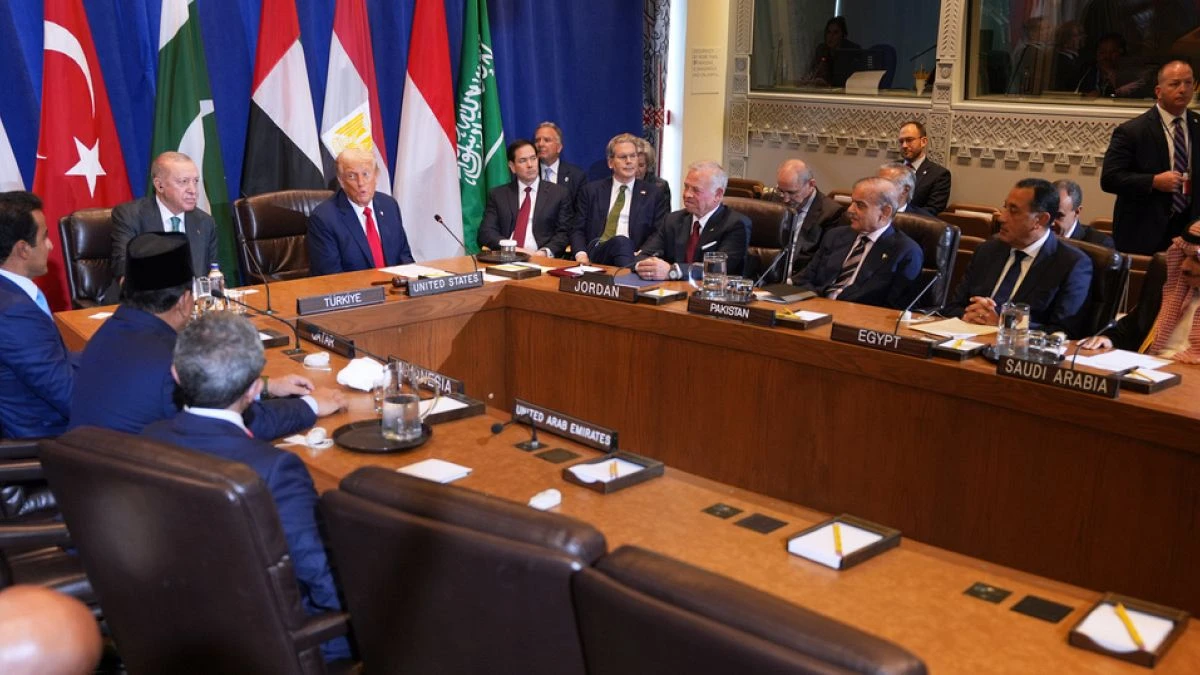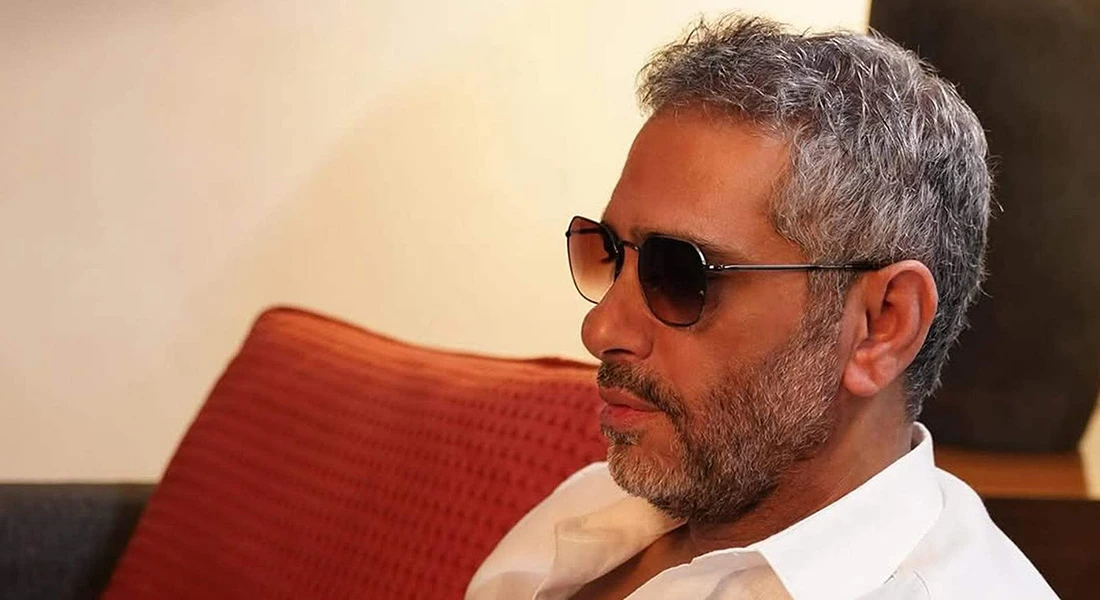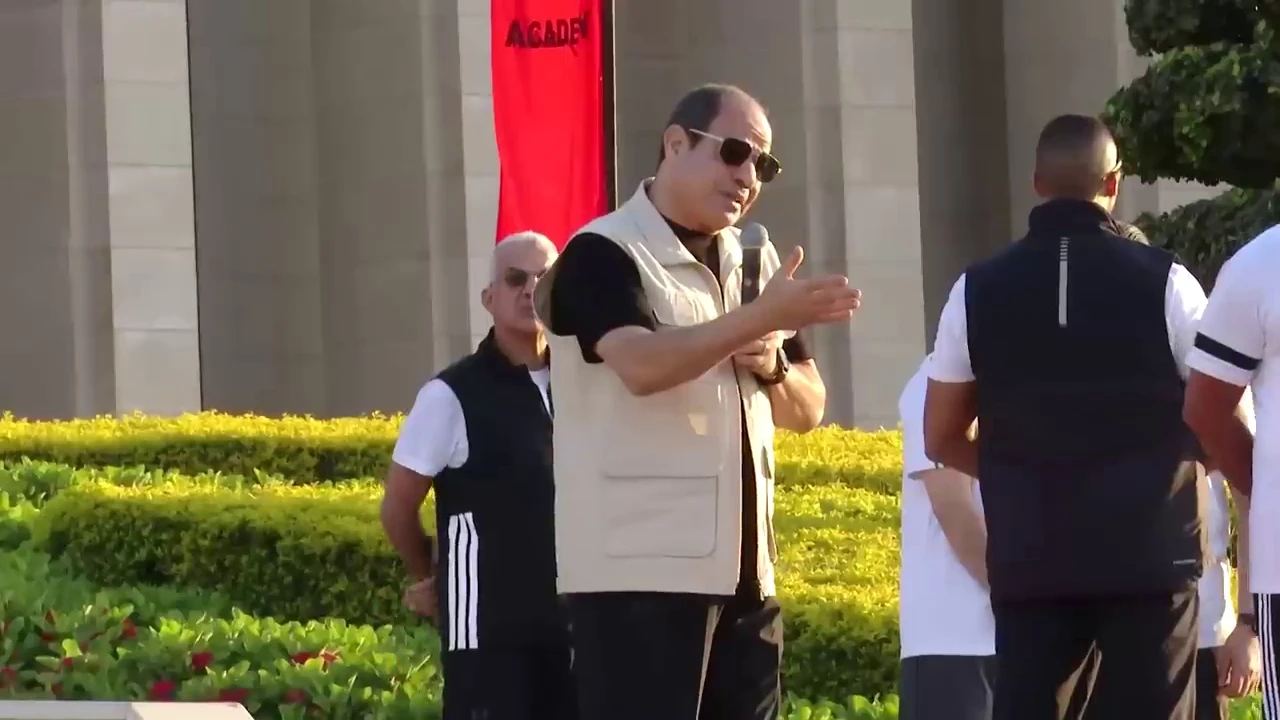Will Sisi Fall into the Same Trap He Set for Morsi? The Countdown Has Begun
This is an AI-generated English translation. The original text is in Arabic.
Amid the escalation of incidents, the disruption of official discourse, and hints from abroad... Is the regime returning to repeat the game used to topple Morsi? But this time, it might be the one who used it that falls, not the one it was used against?
In recent weeks, Egypt has been experiencing an unusual state of political and social tension, accompanied by a rapid acceleration of field events, an increase in the tone of media discourse, and a sudden return to talking about "terrorism" at a suspicious timing, reminiscent of what happened in 2013 and beyond.
As opponents of this regime, we have warned for years about this collapse that was hidden by a massive media machine, and today it seems that the regime itself is no longer able to protect its lies, as if someone suddenly decided that the spotlight should be on all the mistakes that have not ceased since Sisi came to power through a complete military coup, and that the Egyptian street should hear what has not been said to it before.
Egyptians have grown accustomed to repeated incidents under Abdel Fattah Sisi's rule, but what stands out this time is not their recurrence, but rather the way they are intended to be presented and ingrained in people's consciousness.
From the Ramses Central Fire that paralyzed the digital infrastructure, to the repeated train accidents, factory fires, and traffic problems, the scene seemed to be managed in a manner different from what the regime was accustomed to in its past years.
This change coincided with a revelation in the official or semi-official discourse itself, where the media figure Ibrahim Eissa, known for his closeness to the authority, made statements that imply the state is keen on the absence of stability while the people alone want stability for this country. It became clear that Eissa was referring to the term "the state" â Abdel Fattah Sisi, and hinting that the "sheikh of the way" â meaning the head of authority â has become a burden on the country, leading it in a closed, individualistic manner that does not allow for any participation or review.
Other statements from media outlets associated with state apparatuses have also sparked public discontent, including what was published by the newspaper "Al-Dostor," which mocked citizens and described their opinions as "nonsense," in an attempt to strip people of their most basic rights: the right to express their opinions.
What heightened the seriousness of the scene was the Ramses Central Fire, which was not just an accidental incident, but revealed the fragility of the digital infrastructure in a state that is supposed to have spent billions on electronic infrastructure.
Services stopped in wide areas as the fire reignited within 24 hours of being extinguished. The absence of the army from the incident raises real questions about the role of the institution that claims to be the backbone of the state in facing crises, while it stands idly by in the face of a clear collapse of infrastructure that is supposed to be part of national security. Meanwhile, government statements were contrary to reality, dismissive, and downplayed the significance of the event.
More importantly, these incidents coincided with the emergence of external discourse discussing Sisi's future. The prominent Saudi writer Qinan Al-Ghamdi, known for his closeness to decision-making circles in the Gulf, wrote that "June 30, 2025, will be the last anniversary you celebrate, and next year you will be in Qanater Prison or Tora Prison, joking about Sisi's escape in his luxurious plane or perhaps he will be imprisoned and meet the fate of Morsi and Mubarak."
This statement was not just a passing comment on the popular social media platform X but came from a figure with a long record of closeness to the ruling circles in the kingdom, giving this phrase much more weight than just a personal opinion.
Adding to the ambiguity of the picture is the re-emergence of the "Hasm" organization in a new video, announcing its intention to resume operations against the regime.
However, the paradox is that this appearance came at a critical timing, which led some to question the credibility of the video, linking its emergence to security maneuvers that might aim to justify a new repressive campaign or an attempt to convince external parties, both Gulf and Western, to re-adopt the current regime and present it as a bulwark against "renewed terrorism" after it had declared its eradication years ago.
All these indicators, from the escalation of incidents, the change in media tone, the state's absence from its crises, to hints from abroad about a post-Sisi phase, make us ask:
Is what we are witnessing today the beginning of the end of Sisi's regime, or just an internal rearrangement before a new round of control and repression?
And will we see a repeat of the scene with Sisi, but in reverse, as was the case with Morsi, who remained besieged by the army, the media, and the authorities in Egypt until he was overthrown in a military coup?
The Disintegration of State Media and the Shift in Discourse
Perhaps one of the most dangerous challenges facing authoritarian regimes is the disintegration of their media discourse, which has begun to surface in the Egyptian case. Previously, the voices of official and independent media (if any) were subject to strict censorship, and even hinting at any shortcomings or flaws in the state's performance was prohibited. On the contrary, the term "tawheed" (praising the state) became synonymous with Egyptian media during Sisi's rule. Today, we find that some of the most prominent media figures associated with the regime â like Ibrahim Eissa â have begun to stray from the prescribed narrative and speak in a language that was never allowed even for the opposition, with Eissa himself hinting that those who speak "go" in reference to imprisonment.
When Eissa declares that "the state is keen on the absence of stability," or that "development in the monorail and agricultural greenhouses means nothing to the life of the citizen," he is not making a technical criticism but exposing the essence of the philosophy of governance: superficial investment showcases, and projects disconnected from people's needs, accompanied by a complete absence of transparency and accountability.
At the same time, a newspaper like "Al-Dostor" â known for its relationship with the apparatuses â issues sarcastic comments on people's opinions, implicitly calling them to silence, reflecting a growing frustration within the circles of power towards what remains of the already faint voices of the people out of fear.
This change in tone, even if it seems uncoordinated, indicates a fracture in the unified discourse that Sisi's regime has maintained for years, raising the question: Are we witnessing a deliberate preparation for reshaping the image of Sisi's regime? Or have the internal cracks begun to widen beyond the apparatuses' ability to control them?
The Failure of Major Projects and the Disconnection of the State from the Citizen
In recent years, a number of major projects have been promoted as the most significant achievement of Sisi's era: the administrative capital, the monorail, agricultural greenhouses, and fish farms, among others.
However, the reality that the regime's media has long ignored confirms today that Sisi's major projects were nothing but a false facade for development. They did not touch the lives of citizens, did not alleviate their pain, but rather accumulated debts that future generations will pay for concrete illusions that do not satisfy hunger or heal the sick.
These projects overlooked fundamental infrastructure problems, the spread of poverty, and the deterioration of health and education, and were content with showcasing aerial images and protocol speeches for massive projects with no popular impact, some of which have indeed completely failed and no longer exist.
This was accompanied by daily collapses in state facilities: roads collapsing months after their construction, trains derailing, factories burning, and central offices being paralyzed due to negligence or perhaps something beyond that.
A clear rupture has been established between the citizen and the state, or rather the regime: on one hand, the regime lives in a world of conferences and projects unrelated to actual needs, while on the other hand, citizens are asked to remain silent and applaud despite pain, deterioration, hardship, and poverty. In light of the increasing external debts that Sisi built all those showy projects that do not serve the people and the erosion of the currency's value, these projects have become more of a burden on the people than a solution.
Internal Isolation and the Seizure of Public Space
Since taking power, the Egyptian regime has sought to close all avenues for political and social participation, emptying the arena of opposition, and even constructive criticism. Parties have been restricted, social movements criminalized, unions crushed, and prisons filled with over 100,000 political detainees.
Today, after more than a decade of this approach, it has become clear that the regime possesses nothing but itself, having dismantled all institutions of mediation and participation, and there is no longer a political elite capable of absorbing shocks or presenting initiatives and solutions, as it has cut off communication with the people by retreating into an environment created by the regime for itself and its beneficiaries.
Even the regime's historical loyalists, from media figures to some associated with the apparatuses, have begun to express concern or anger openly.
This change that has accompanied Sisi since his rise to power cannot be separated from the growing feeling that the state has lost its compass, and that the people are no longer represented in any of its institutions.
Between Sisi and Morsi: Similarity of the Moment and Difference of Tools
When we look at what is happening today, we cannot ignore the similarities between what is currently happening and what occurred with the late President Mohamed Morsi before his overthrow and dismissal.
In Morsi's days, fabricated crises emerged, mistakes accumulated, and a state of media chaos spread, coinciding with a campaign to convince that the country was on the brink of collapse.
The only difference is that Morsi did not hold actual power in the country, while Sisi holds everything in the country after getting rid of all power centers within it. Nevertheless, the moment is similar in terms of dynamics: the escalation of incidents, inciting the street, and the growing local discontent, which has also increased internationally during Sisi's era.
Sisi has previously used "terrorism" as a card to justify his actions after the coup, and it is now re-emerging in the form of a new video from the "Hasm" movement, at a timing not devoid of ambiguity.
Is it a real threat? Or an attempt to reproduce the "war on terrorism" discourse that the regime has long used to justify internal repression and gain external support from both the Gulf and Europe?
Scenarios After Sisi: Disintegration, Escalation, or Soft Transition?
In this turbulent context, a question arises that cannot be avoided: What could happen if the regime falters or loses control?
The scenarios are multiple, ranging from a gradual disintegration of the regime under the weight of economic collapse and internal trust erosion, to a security escalation that could be used to strike opponents or create an "internal enemy" to extend the regime's lifespan.
One cannot rule out the scenario of a soft transition, driven by regional or international parties, towards a new, more "moderate" military figure, or perhaps transforming into a situation similar to the Tunisian case with a civilian president with military actions, preserving the interests of the West and the Gulf without provoking the internal situation or controlling it in a systematic and more effective manner than the current regime's approach.
In all cases, it seems that Sisi is facing a critical moment where popular pressures, discontent from within the regime, and indirect messages from abroad intersect, all of which evoke memories of the endings in previous regimes... without necessarily meaning a repetition of the same scenario.
Hamza Hassan

